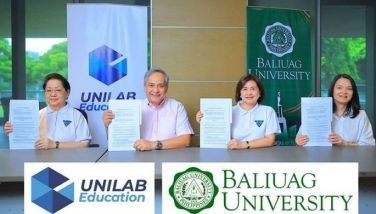Cory Aquino’s last SONA (II)

In my last column, I reprinted the first part of the SONA of Corazon Aquino delivered in 1992. Because of space limitations, the entire SONA could not be reprinted. Here is the last part of the SONA. It may have been delivered years ago, but the messages remain very relevant.
* * *
I firmly believe in the freedom of the press. And I accept the criticisms poured on me, painful as they are, as part and parcel of the hazards of public service, and conducive to its honest performance. True, I have sued for libel, but I did not use the power of the presidency to advance for myself. But my instructions to PNB, DBP, GSIS, SSS and Land Bank were explicit: no behest loans, and no special favors whether to relative, friend or political supporter. This accounts for their sterling performance, for the unprecedented public faith in their competence and integrity, and for the incalculable contribution, particularly of PNB and the Land Bank, to the development of cooperatives and the financing of small and medium enterprises, wherein lies the strongest hope of progress in these times.
We can roll back prices at the drop of a hat and spare ourselves all the aggravation, but we learned that hasty rollbacks exacted a heavier, long-term cost on the economy and, ultimately, on the people, than they had saved.
I could have done any of the things calculated to win a passing popularity at home. I could have thrown away by so-called popular solutions the goodwill we have built up in financial circles by the strict performance of our obligations. This is the goodwill that accounts for the continued support extended to the Philippine Assistance Program [PAP]. Anyway, most of the pledges to the PAP are redeemable in the next administration.
I could have said, “Let my successor be presented with the bill for my popularity today.” But it is the people who would pay the price, and I am not made that way. I did not always adopt the ideal solutions proposed by those who have the luxury of contemplation. Government often had to do what pressing realities compelled it. And if the government sometimes lacked better choices, it never lacked the sincere desire to do good.
I could have promoted only military officers popular with the press, and ignored the experience of a democratic government that has been the principal military objective of the rebel forces and an insurgency that just doesn’t know when to quit. But I chose instead commanders of proven courage, leadership and fidelity to the Constitution.
I could do the smart thing still, and do the things my opponents unfairly charge me of preparing – rigging the elections in 1992, the way I did not rig the ratification of the Constitution, the national elections and the local elections. The way they rigged elections from 1969 to 1986.
But my instructions to the military and police are explicit. Let them hear it again: The right of the soldier and the policeman is merely to cast his vote; his greater and solemn obligation is to assure the right of others to cast their votes and get them honestly counted.
No soldier has the right to combine with his comrades to campaign for a person or party and deliver to them a block of the military vote. No member of the military shall lend his name, prestige and the influence of his position to anyone’s campaign. The same holds true for the police.
The military has earned the people’s trust as the spearhead of their liberation and the constant defender of their democracy. To these honors, it is my aim to add the distinction of shepherding our democracy through its first political succession, by clean and peaceful elections.
I will not preside as Commander-in-Chief over the kind of military that cheated the opposition in 1978, and me in 1986. That would insult the memory of the man to whom I dedicate this last address to the joint houses of Congress, and stain the proud achievement of this nation in 1986.
While they may not fear my displeasure because I will not be president then, they will face the judgment of the disappointed country.
Yes, I could have done all those things that win wide acclaim, exiting as grandly as any president could wish. But while my power as president ends in 1992, my responsibility as a Filipino for the well-being of my country goes beyond it to my grave. A great part of that responsibility is to do the best I can today, according to my best lights, while I have the power to do it.
As President, I have never prayed for anything for myself; only for our people. I have been called an international beggar by the military rebels. Begging does not become me, yet – perhaps it is what I had to do. I could have kept my pride and held aloof, but that would not have helped our people. And it is for them that I was placed in this office.
Someone who will do better may stand in this place next year, for I believe in the inexhaustible giftedness of the Filipino people. I only hope that he will be someone who will sincerely mean you well.
I hope that history will judge me as favorably as our people still regard me because, as God is my witness, I honestly did the best I could. No more can be asked of any man.
On June 30, 1992, the traditional ceremony of political succession will unfold at the Luneta. The last time it was done that way was in 1965. I shall be there with you to proudly witness the event. This is the glory of democracy, that its most solemn moment should be the peaceful transfer of power.
Maraming salamat sa inyong lahat at paalam.
* * *
Email: elfrencruz@gmail.com
- Latest
- Trending





























